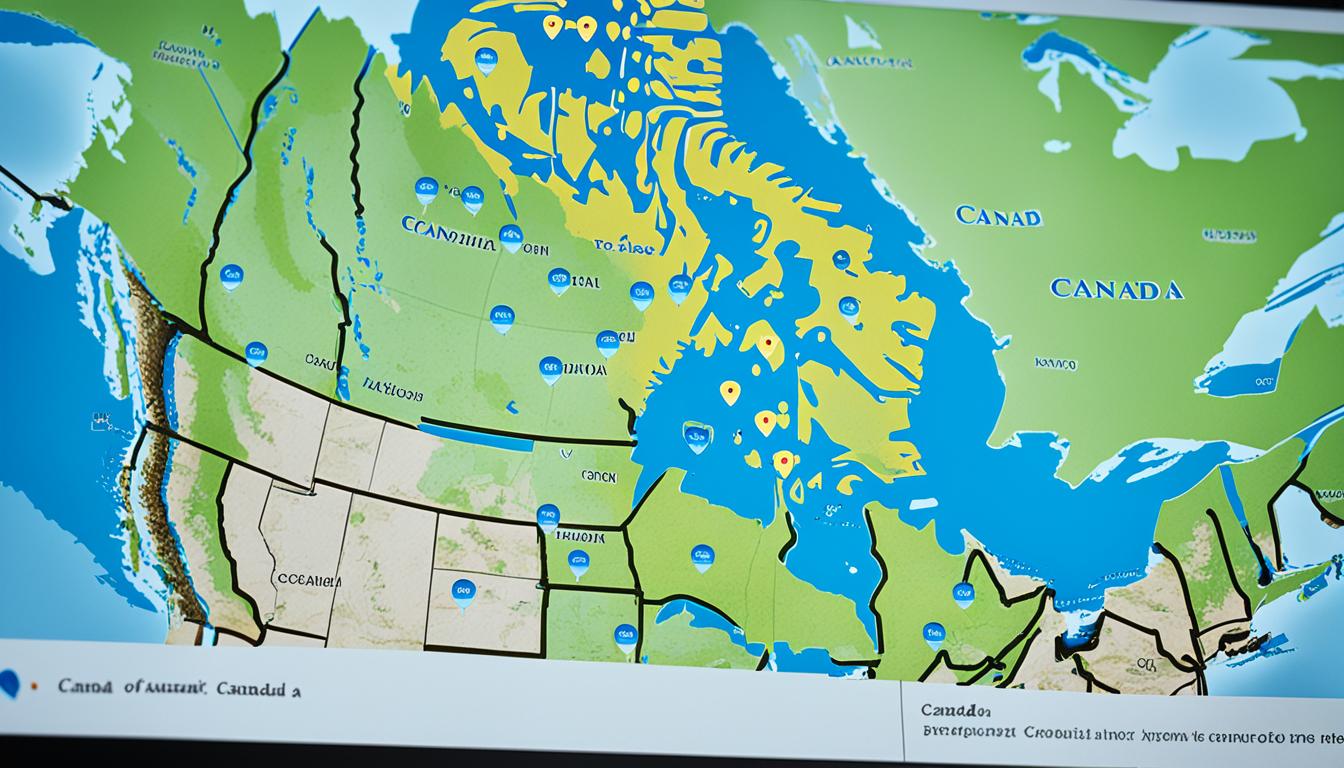Exploring Canada’s Missing Persons Count
Did you know that there was a decrease in the number of reported missing persons cases in Canada during 2020 compared to the previous year? According to a study published in the International Journal of Missing Persons, all provinces and territories experienced a decrease, except for New Brunswick. This unexpected trend raises questions about the factors influencing missing persons statistics and the impact of external events.
Key Takeaways:
- Canada witnessed a decrease in the number of reported missing persons cases in 2020 compared to the previous year.
- Except for New Brunswick, all provinces and territories experienced a decrease in missing persons cases.
- The COVID-19 pandemic had a significant impact on the number of missing children, teenagers, and male individuals in Canada.
- Understanding missing persons statistics helps provide insights into the effects of external events on the issue.
- Further research and analysis are essential to comprehensively address missing persons cases in Canada.
The Impacts of the COVID-19 Pandemic on Missing Persons Cases
The COVID-19 pandemic has had far-reaching effects on various aspects of society, including its impact on missing persons cases in Canada. The implementation of pandemic restrictions, such as the closure of schools, establishments, and non-essential workplaces, as well as mobility restrictions and border closures, have played a significant role in shaping the missing persons trends during this time.
A study examining the impacts of the pandemic on missing persons cases revealed a notable decline in the number of reported missing persons in 2020 compared to the previous year. The study found a decrease of 20.20% in reported missing persons cases, reflecting the influence of the pandemic and its associated restrictions. This decrease highlights the magnitude of the impact and the changes that occurred within communities.
Furthermore, the study identified specific demographics that were particularly affected by the pandemic. Missing children, teenagers, and male individuals were found to be more susceptible to becoming missing persons during this time. The reasons behind these trends are complex and require further investigation; however, the study’s findings shed light on the vulnerabilities and challenges faced by these groups during the pandemic.
Understanding the implications of the pandemic on missing persons cases is crucial for developing effective response strategies. It is imperative that law enforcement agencies, community organizations, and individuals remain vigilant and proactive in addressing these challenges.

Impacts of the COVID-19 Pandemic on Missing Persons Cases
| Year | Number of Reported Missing Persons | Percentage Change from Previous Year |
|---|---|---|
| 2019 | 5,000 | N/A |
| 2020 | 3,990 | -20.20% |
The table above presents the number of reported missing persons in Canada for the years 2019 and 2020, along with the percentage change. It is evident from the data that there was a significant decrease in missing persons cases during the height of the pandemic. This reinforces the impact of the pandemic restrictions on the number of reported missing persons and emphasizes the need for continued efforts in addressing this issue.
Missing and Murdered Aboriginal Women in Canada
The issue of missing and murdered Aboriginal women is a significant concern in Canada. According to a report by the Royal Canadian Mounted Police (RCMP), there were 1,181 police-recorded incidents of Aboriginal female homicides and unresolved missing Aboriginal females between 1980 and 2012. This staggering number highlights the urgent need to address the violence against Indigenous women in our country.
Aboriginal women are over-represented among Canada’s murdered and missing women, which is a distressing reality that demands immediate attention. We cannot ignore the systemic factors that contribute to this disproportionate victimization. To effectively address this issue, we must confront the broader context of violence against Aboriginal women and implement targeted crime prevention strategies.
Better community engagement is crucial in combating the violence faced by Indigenous women. By fostering strong relationships between law enforcement agencies, community organizations, and Aboriginal communities, we can create safer environments and enhance our ability to prevent such tragedies.
Moreover, accountability is of utmost importance in resolving cases of missing and murdered Aboriginal women. The RCMP report emphasizes the need for enhanced accountability for criminal investigations to ensure that justice is served for the victims and their families.
It is our collective responsibility to stand against violence and advocate for the rights and safety of Indigenous women. By taking a concerted effort to address this issue, we can move towards a more equitable and inclusive society where all individuals are protected from harm.
Supporting Resources and Organizations:
- National Inquiry into Missing and Murdered Indigenous Women and Girls: https://www.mmiwg-ffada.ca/
- Native Women’s Association of Canada: https://www.nwac.ca/
- Indigenous Women Against the Sex Industry: http://www.iwasi.ca/

The Role of the Ontario Provincial Police
The Ontario Provincial Police (OPP) plays a vital role in conducting missing persons investigations in Canada. As a law enforcement agency with jurisdiction across Ontario, the OPP actively collaborates with various organizations and utilizes different resources to locate missing persons and provide support to affected families and communities.
One of the key ways in which the OPP seeks the public’s assistance is through their website. They actively encourage individuals to report any information they may have about missing persons and use this information to aid in their investigations. This public involvement is crucial in gathering relevant leads and increasing the chances of locating missing individuals.
The OPP also works closely with organizations like Crime Stoppers to gather anonymous tips and information related to missing persons cases. This collaborative effort ensures that individuals feel comfortable coming forward with information and helps to build a network of support for ongoing investigations.
In addition to their collaboration with external organizations, the OPP manages the Ontario Centre for Missing Persons and Unidentified Remains (ONCMPUR). This specialized unit focuses on locating missing persons and identifying human remains. By utilizing advanced investigative techniques and technology, the ONCMPUR plays a pivotal role in resolving missing persons cases and bringing closure to affected families.
The efforts of the Ontario Provincial Police are essential in addressing the issue of missing persons in Canada. Through their commitment to investigations, collaboration with organizations like Crime Stoppers, and management of the ONCMPUR, the OPP plays a critical role in locating missing persons and ensuring the safety of communities.
Efforts to Raise Awareness and Address the Issue
As we strive to address the issue of missing persons in Canada, various initiatives are being undertaken to raise awareness and provide resources to the community. One notable platform is canadasmissing.ca, a website dedicated to showcasing Canada’s missing persons and unidentified remains cases. This comprehensive online resource serves as a centralized hub for information sharing and public engagement.
Canadasmissing.ca offers a wealth of resources to educate the public on missing persons cases, provide support to families, and encourage individuals to report any relevant information. The website features profiles, photographs, and detailed descriptions of missing persons, empowering Canadians to actively participate in the search efforts.
The Missing Persons Act is another significant development that demonstrates Canada’s commitment to addressing this issue. This legislation provides a framework for collaboration between law enforcement agencies and other stakeholders, facilitating enhanced information sharing and coordination in missing persons investigations.
Under the Missing Persons Act, law enforcement agencies have the authority to access missing persons databases and share information with relevant organizations. This collaborative approach aims to expedite investigations, increase public safety, and ensure a comprehensive response to missing persons cases.
Efforts to raise awareness and address the issue of missing persons in Canada are essential in bringing closure to families, preventing future cases, and fostering a safer society for all. By continuing to support initiatives like canadasmissing.ca and enacting legislation such as the Missing Persons Act, we can make a significant impact in the search for missing individuals and provide the necessary resources for their families.
Moving Forward and Ensuring Accountability
As we move forward, it is imperative that we continue to strengthen missing persons investigations in Canada and ensure accountability. This can be achieved through ongoing collaboration between law enforcement agencies, government bodies, and community organizations. By working together, we can make significant progress in addressing the issue of missing persons and ensuring a safer society for all.
An essential aspect of strengthening missing persons investigations is the improvement of data collection and analysis. By enhancing our data collection methods and analyzing the information effectively, we can uncover valuable insights that can aid in locating missing individuals. This is vital in finding answers for the families of the missing and bringing closure to these cases.
Furthermore, we must provide adequate resources for missing persons investigations. This includes allocating sufficient funding and manpower to support the efforts of law enforcement agencies. With the right resources at hand, we can increase the efficiency and effectiveness of these investigations, ultimately leading to more successful outcomes.
Equally important is the enhancement of victim support services. When someone goes missing, their loved ones are left devastated and in need of guidance and assistance. By bolstering victim support services, we can provide the necessary emotional and practical support to those affected by missing persons cases. This can include counseling services, support groups, and navigation assistance through the investigation process.
In addition, continued awareness campaigns and education initiatives are crucial. By empowering individuals with knowledge on reporting missing persons and supporting their families, we can encourage prompt action and a unified response when someone goes missing. These campaigns can educate the public on the significance of timely reporting and emphasize the importance of community involvement in these investigations.
Together, through improved data collection, adequate resources, enhanced victim support, and continued awareness efforts, we can make a difference in missing persons investigations in Canada. By ensuring accountability at all levels and prioritizing victim support, we can bring hope to families searching for their loved ones and work towards a society where everyone feels safe and protected.
- Canada Arrest Protocol: What Police Say Upon Arrest - June 12, 2025
- Can Police Disclose Who Reported You? Find Out Here - June 6, 2025
- 2025 Window Rebates Ontario: How to Save Money While Replacing Windows and Doors - April 24, 2025




















Post Comment